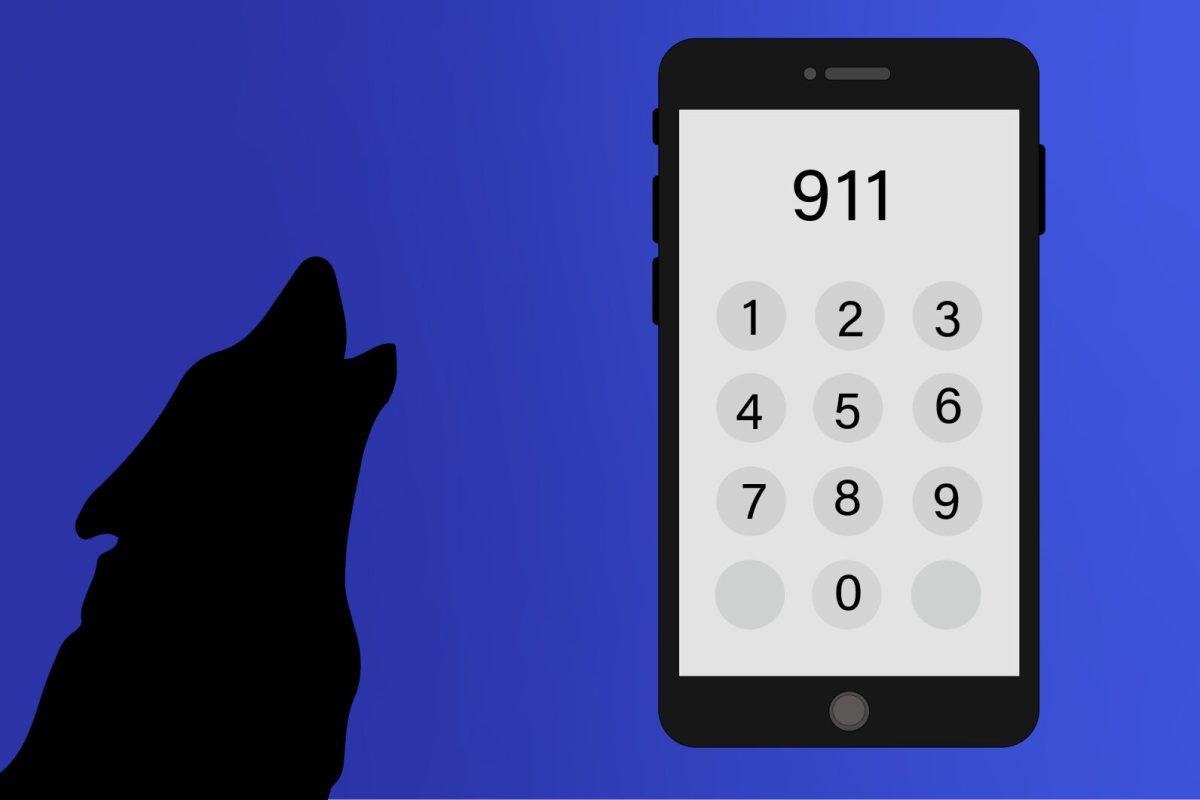Editor’s note: This article contains references to alcohol and opioid overdose.
The North Carolina Department of Health and Human Services reported overdose deaths in North Carolina increased 72% since 2019. Howl for Help’s goal is to prevent such fatalities.
The Office of Student Conduct’s program Howl for Help ensures that by calling an emergency number for a suspected drug or alcohol overdose, students will not face formal disciplinary action for either underage possession or consumption of alcohol or other controlled substances.
Thomas Hardiman, director of the Office of Student Conduct, said if students are concerned about the safety or health of themselves or another individual, the most important thing they can do is call 911.
“We want people to call because, essentially, we’d rather someone wake up in a hospital bed than not wake up at all,” Hardiman said.
Anthony Puckett, major of Field Operations, said the person calling 911 can expect to have the operator ask them questions about the victim and their condition. This helps ensure the appropriate authorities arrive at the scene.
If an individual is overdosing on opioids, Puckett said police officers carry and are able to administer Naloxone, also known as Narcan. Once a student receives medical assistance and a report is filed, the Office of Student Conduct will reach out to the student.
“And when we’re talking with them, we’ll be like, ‘Hey, I know this was maybe a case of drug use or possession or underage alcohol consumption,’” Hardiman said. “But we’ll then teach them about ‘This is actually eligible for Howl for Help,’ and we’ll kind of go through that and just list out the things they need to do.”
A student qualifies for Howl for Help if they receive medical assistance — whether they seek assistance on their own behalf or as a result of another person. They also qualify if they receive medical assistance and are reporting a crime or are an alleged victim of a crime.
The Office of Student Conduct works alongside Prevention Services, who meet with the individual and provide resources focused on prevention and recovery. The only information the Office of Student Conduct receives is whether the student was present.
If a student attends the required meetings, the incident will not be reported in the student’s disciplinary history.
“The effort and goal behind it is, we want to establish the level of trust with the students and the University that they are not afraid to make a phone call to get the help they need,” Hardiman said.
While the Office of Student Conduct evaluates incidents on a case-by-case basis, Howl for Help does have limitations.
Howl for Help is not available if a student has engaged in other prohibited conduct. This includes but is not limited to driving under the influence, committing acts of harm or distributing controlled substances. The full list can be found in section 5.10 of student discipline procedures.
Puckett said safety is one of the greatest considerations behind police officers either arresting or referring a student to the Office of Student Conduct.
“Driving while impaired is an issue that we handle on campus, and that will most of the time result in an arrest,” Puckett said. “And that’s because if the individual is by himself or herself, we don’t want to leave them there in a vehicle and risk the chance that the individual drives off and hurts themselves or somebody else.”
Howl for Help’s website lists the following as signs of an alcohol or drug overdose: mental confusion, unresponsiveness, snoring or gasping for air, throwing up, hypothermia, erratic breathing, loss of consciousness and paleness or blueness of the skin.
Puckett said Howl for Help is based upon North Carolina’s Good Samaritan Law, which was passed in 2013 after an increase in overdoses involving heroin.
The law states that individuals who experience or witness an overdose and seek help for the victim can’t be prosecuted for possession of small amounts of drugs, paraphernalia or underage drinking.
However, as overdoses increase across the state, some North Carolinians have requested further protections for individuals. Thus, NC Senate Bill 458 proposed limited immunity for those at the scene who are not the victim or the person who called 911.
NC Senate Bill 458 was referred to the Committee On Rules and Operations in the state Senate April 3, 2023. There has been no further action.













